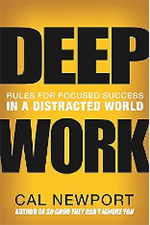Keep Your Students Organized and Motivated with Piano Exams!
Timothy Stephenson
MTNA Business Digest, Volume 3, Issue 3
April 2024
Looking for ways to engage your students? When utilized well, piano exams can be a helpful tool to keep students motivated, teachers organized and parents confident in their children’s piano journey.
Examinations aren’t for every student, so it is important to carefully assess which, if any, piano exams will be beneficial for your students’ progress. In the digital age, certifications are becoming more and more popular, thus parents are increasingly keen to find opportunities that allow their children to build skills and provide documented proof of their experience. This is where piano exams can come in handy and can be a worthwhile investment to help market your studio!
There are a wide range of examinations available all the way from nationally and internationally recognized organizations to local community schools. The following are a few popular and accessible piano examinations that you can start using with your studio now! A comparison chart appears at the end this article.
ABRSM
The Associated Board of the Royal Schools of Music (ABRSM) is the oldest and most widely recognized global music education organization, which has offered music exams since 1890! ABRSM is known for its ambitious syllabi for examinations, which include a performance track that focuses on repertoire and a practical track, which tests technique, sightreading and aural skills. Certifications are available for both performance and practical tracks at each of ABRSM’s eight levels. ARBSM exams are very accessible, with a range of in-person and remote options; however, the syllabi have very specific and sometimes restrictive repertoire requirements.
Royal Conservatory of Music (RCM)
Similarly to ABRSM, the Royal Conservatory of Music has developed a series of syllabi-based examinations that are administered annually. Internationally recognized, the RCM Certificate Program structures its exams into ten levels, with testing of repertoire, technique, and musicianship. Certificates are awarded progressively by level and a separate Music Theory certificate is also available. In general, RCM and ABRSM are very similar and are available in-person and remotely; however, RCM focuses on core competencies with fewer exam options available to students.
Certificate of Merit (CM)
For residents of California, the Music Teachers’ Association of California (MTAC) has developed an evaluation program called the Certificate of Merit. Offered in person and remotely, the CM examinations test students’ performance, technique, ear training, sightreading and music theory skills in progressive difficulty up to grade eleven. While certificates are available for each grade, serious students can opt into the competition track, with more demanding repertoire requirements. Participation in CM requires California residency and membership in MTAC; however, for those that are eligible, CM is an affordable alternative to ABRSM and RCM.
Rockschool Piano Exams (RSL)
Rockschool Limited Awards (RSL) began offering evaluations in 1991 in response to traditional formal music education to promote a system of music education that utilized popular music. Based in the U.K., RSL Awards offers graded exams that test performance, technique, sightreading, ear training and musicianship through the lens of pop artists like The Beatles, Ariana Grande, Sam Smith and more. Exams can be taken remotely in live or recorded formats and certificates are available for eight graded exam and performance exam levels (repertoire only). While RSL Awards is innovative, there could be difficulty adjusting teaching styles away from the standard repertoire.
National Federation of Music Clubs (NFMC)
The National Federation of Music Clubs (NFMC or, simply Federation) is a national organization that governs state-level music clubs, which among other things, host annual festivals for the non-competitive evaluation of musical skills. Each district and state are responsible for conducting these in-person exams; thus they are highly variable in terms of fee and availability. Students are categorized into Junior, Senior, and Collegiate divisions and there are several levels within each division to test piano solo, piano ensemble, piano concerto, hymn playing, sightreading, and more. Federation tracks student progress via gold cups, which are distributed upon the completion of different levels. While the festivals themselves are not competitive, there are numerous monetary awards available for high performers in each category.

Still unsure if piano exams are the right fit for your studio? Check out the article below:
BONUS: The pros and cons of piano exams from Catherine Sipher at colourfulkeys.com!
Looking for a good read?
Ashley Danyew
Deep Work by Cal Newport

Author and computer science professor Cal Newport has much to share on the topic of work, focus and time management in his thoughtful, actionable, well-researched book, Deep Work: Rules for Focused Success in a Distracted World.
Newport defines deep work as “activities performed in a state of distraction-free concentration that push your cognitive capabilities to their limit.” In contrast, shallow work is “non-cognitively demanding, logistical-style tasks, often performed while distracted.”
Both are important (we need to respond to emails and send invoices to keep our businesses running), but deep work is where we develop and hone our skills, create things of value, and do our best, most original work. This is where we move the needle in our businesses.
The challenge is that our increased use of technology has undermined our ability to focus on tasks for any length of time (TikTok videos, anyone?). Newport writes, “The constant switching from low-stimuli/high-value activities to high-stimuli/low-value activities, at the slightest hint of boredom…teaches your mind to never tolerate an absence of novelty.”
To counteract this, we need to learn how to quiet our minds, structure our time, set goals and measure the results. That’s where this book comes in.
Deep Work is divided into two parts: In the first half, Newport describes our knowledge-based economy and makes a case for the value of deep work and the benefits of cultivating this practice. In the second half, he outlines practical strategies for fostering deep work in your career with four rules for success:
- Work Deeply
- Embrace Boredom
- Quit Social Media
- Drain the Shallows
Our time and attention are limited resources. In fact, Newport tells us that—at most—we can expect to have about four hours per day of deep, focused work (this includes practicing!). However, four hours of deep work isn’t a given; it requires strategy. Without a goal or an intention for how we’ll spend our time, most of us default to whatever is easiest in the moment (i.e. shallow work).
That’s why this book is so helpful—Newport provides the tools, resources, and strategies we need to implement deep work in our weeks. This means working more efficiently and strategically and creating more meaningful work.
As Newport summarizes, “A deep life is not just economically lucrative, but also a life well lived.” I hope you enjoy this book as much as I did.

Tim Stephenson
is a pianist, teacher and administrator on staff at the Indianapolis Symphony Orchestra and on faculty at Pacific Piano School. Tim is currently a doctoral candidate at IU’s Jacobs School of Music.

Ashley Danyew, PhD, is the founder and editor of Musician & Co., equipping classical musicians with the tools and education they need to be entrepreneurs and small business owners. Learn more at musicianandcompany.com.